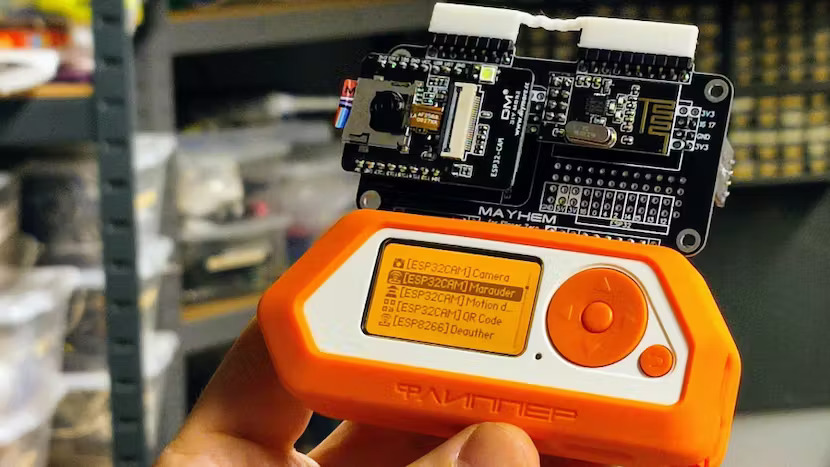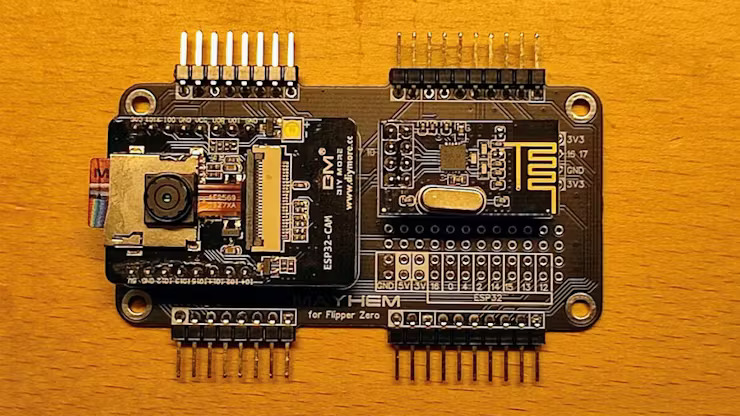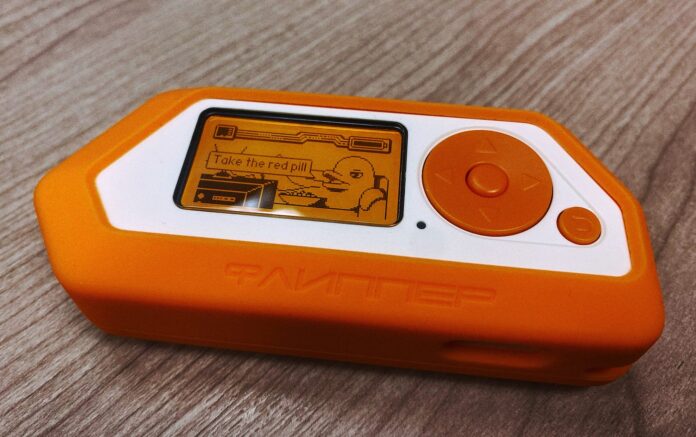This Flipper Zero add-on significantly improves the well-liked multi-tool with its built-in camera and extra radios.

The popular Flipper Zero electronic multi-tool has an add-on created by maker Erwin Ried that intends to expand its capabilities even further by including Wi-Fi and Bluetooth compatibility, more general-purpose input/output (GPIO) ports, and even a colour camera sensor.
The selling point of Ried’s invention, according to him, is that “you have the same functionality plus much more for a fraction of the price instead of purchasing an expensive WiFi Dev board.” You can get a good layout for three-pin sensors without having to tamper with anything, deal with complicated wiring, or bodge an SD Card reader. It is [even] less expensive than the set of prototype boards.
The Flipper Zero was created to combine Tamagotchi-like virtual pet features with a surprisingly useful multi-tool for GPIO and wireless projects. It went into mass production back in November 2021 and has been selling out almost nonstop since then. It features a sub-gigahertz radio, RFID and NFC scanners, a USB input device that can be pre-programmed, and a variety of GPIO pins that Ried’s Mayhem Hat connects to.
The Mayhem Hat has a Nordic nRF24L01 radio transceiver and a Espressif ESP32 module with Wi-Fi and Bluetooth connectivity to get past the stock Flipper Zero’s lack of Wi-Fi functionality. There is a microSD slot for storage, an LED torch, and maybe the most peculiar addition to the device. tool: a camera module from Omnivision (OV2640).

This will give you access to the following features,” Ried explains. “The Marauder firmware, which is a portable penetration testing tool created for Wi-Fi and Bluetooth analysis. The firmware also includes microSD functionality, allowing you to dump PCAP files. Camera (2MP JPEG) and flashlight, accessed through the ESP32CAM Marauder app, [It can also act in Nintendo] Game Boy Camera style (low res 128×64 BMP) with preview on the Flipper Zero. QR code reader. Motion detection.”
Full board details are available on the project’s GitHub repository, along with source code under the permissive MIT license. Ried has begin selling kits and pre-assembled boards on Tindie at $40, but at the time of writing had already sold through the first production batch.
Source: hackster.io


